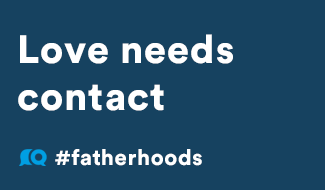This article offers some advice to parents who believe their child has been kidnapped. It aims to set the record straight when it comes to some of the misconceptions about this complex subject.
What is kidnapping?
Kidnapping is a ‘common law’ offence. This basically means that there is no statutory definition of kidnapping. Therefore, we have to look at those cases that a court has deemed a kidnapping to help us define it. However, essentially, kidnapping is the unlawful removal of someone against their will.
If a parent does not return a child to the other’s care following contact this does not constitute kidnapping.
What might kidnapping be confused with?
Kidnapping is not the same as child abduction. Child abduction is a specific criminal offence in accordance with the Child Abduction Act 1984 and refers to an instance when a person connected with a child (not necessarily a parent) takes or sends a child under 16 outside of the UK without the appropriate consent. Usually this means the written consent of everyone with parental responsibility for the child, or a court order.
However, those who have a Child Arrangements Order (which confirms the child lives with them) or a Special Guardianship Order, can legally remove a child for up to one month or three months respectively.
Kidnapping is also different to false imprisonment, which involves someone being detained against their will.
What situation is not a kidnapping?
Many parents believe that kidnapping has taken place if:
- a child hasn’t been returned to their care or
- a child isn’t made available for contact.
But these are common misconceptions.
- If a parent does not return a child to the other’s care following contact this does not constitute kidnapping. If there is a court order regulating contact arrangements then, in the absence of a reasonable excuse, it is a breach of the court order so can be enforced through the family courts. It is not, however, a criminal offence.
But what if there is no court order? If this is the case and both parents share parental responsibility, a parent who doesn’t return the child is not breaking the law. They are entitled to do this in the exercise of their parental responsibility. The other parent has to apply to the court for a ‘without notice’ (emergency) court order – possibly a Child Arrangements Order or Specific Issue Order – seeking the return of the child. They may also decide to apply for a Prohibited Steps Order, which prevents the subsequent removal of the child by the other parent.
In either scenario, not returning the child does not constitute an abduction unless it involves the child leaving the UK.
- I am often asked, if a child is not being made available for contact does this mean they are being kidnapped? The answer is no, they are not. The child is not being ‘removed’ from anywhere.
In addition, in the absence of a court order such as a Child Arrangements Order there is no legal obligation for one parent to make the child available for contact, therefore it is not a crime. For the same reason, neither does it count as false imprisonment. Even if there was a breach of a Child Arrangements Order, this a is a family court order, not a criminal court order.
Posted on February 16, 2021














